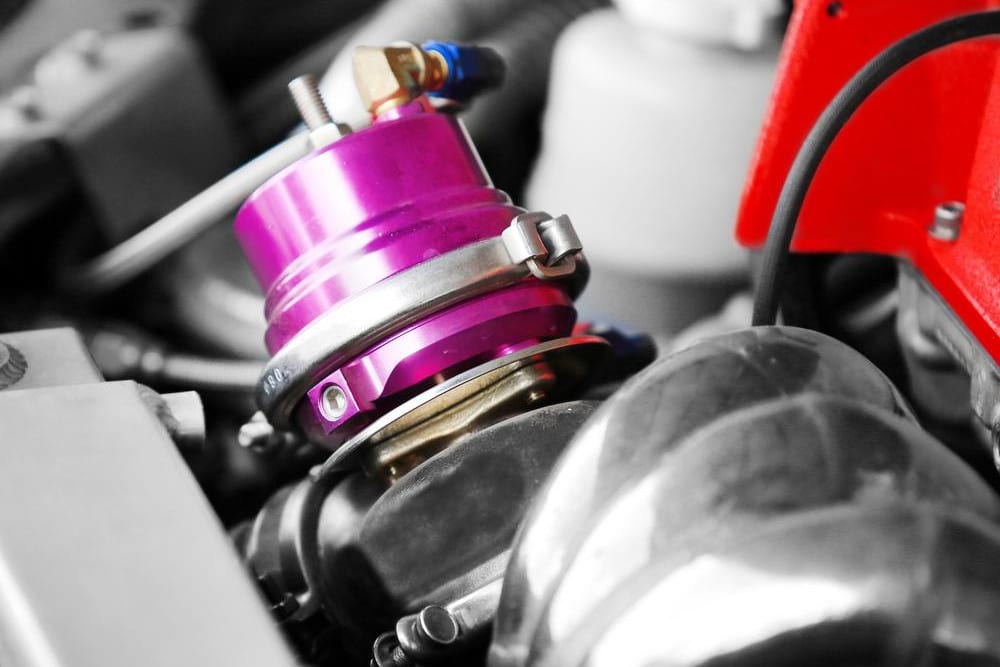

When the turbocharger was introduced in the early 1900's for diesel engine applications, one of the most difficult side-effects was broken internal engine components caused by excess pressure built up by these forced induction systems. The solution to reduce this problem was to create a pressure release tube, commonly referred to in today's turbocharged engines as a wastegate hose.
Today's modern cars, trucks and SUV's that utilize turbochargers are commonly powered by diesel fuel. The turbo system supplies the engine with additional air or "boost" inside the fuel injection manifold, and is forced into the combustion chamber to create a more efficient burn. When the turbo builds up too much pressure, it is released by way of the wastegate hose. Essentially, this is a gate inside the turbo that opens or closes depending on performance needs. When it opens, it allows air through the turbo. When it closes, it shuts off the boost or restricts the flow of forced air into the combustion chamber.
When this complex performance system works properly, a vehicle's engine performance can improve by as much as 40% as opposed to running a standard fuel injection set up. However, a bad or failing wastegate hose can cause a number of different problems for your engine. Here are some common symptoms and warning signs that may hint towards having a worn out wastegate hose:
1. Check Engine Light comes on
Since the wastegate hose is designed to relieve pressure inside the turbocharger manifold, it is constantly monitored by the vehicle’s ECU (engine control unit). Typically each automotive manufacturer will establish an operating pressure zone, ranging from the minimum pressure allowed to a maximum amount of "boost" to be created inside the turbocharger. Since these systems are extremely complex and set with incredibly tight tolerances, when the boost approaches the top zone or eclipses it by less than one pound of air pressure, it will commonly trigger a warning code and thus illuminate your Check Engine Light. If you have a turbocharged vehicle and this light comes on the dashboard, you should safely drive your car back home and contact a certified mechanic as soon as possible.
Sometimes this issue can be caused by a vacuum leak, but with a turbocharged car it's very difficult to diagnose without the proper experience, tools, and procedures that a certified diesel mechanic will possess.
2. Vehicle's turbo does not produce boost during acceleration
If you've driven a turbocharged engine before, you'll easily understand the difference between an engine that is engaging the turbo and one that is not working properly. When you apply throttle pressure to the engine and the turbo does not engage, or the turbo boost gauge does not register a boost level, it's commonly due to the wastegate not functioning correctly or a blockage in the wastegate hose.
If you notice this problem, it's recommended to contact an experienced diesel mechanic with experience in turbocharged systems immediately to repair the problem before additional damage to the turbocharger occurs.
3. Oscillating turbo boost pressure
When the wastegate is not relieving pressure on a consistent basis, it will commonly cause the boost pressure inside the turbo to oscillate rapidly. For example, if during normal acceleration your turbo boost climbs consistently as your car accelerates and reduces slowly once you stop pressing down on the accelerator, this is what is supposed to occur. If your turbo boost drops quickly or rises quickly without the application of the throttle, it could be caused by a blockage in the wastegate or a broken wastegate hose. If this is the issue, it's likely that you'll have to replace the wastegate hose.
4. Dramatic decrease in fuel economy
One of the best advantages of buying a turbocharged diesel engine is that, for the most part, they produce exceptional fuel economy. However, when the wastegate hose is broken, leaking or blocked, it will cause more raw fuel to be expelled from the exhaust system without being burned. This will result in a rapid loss in fuel and significantly reduced fuel economy. If you notice that you're filling up the fuel tank more frequently than normal, contact a certified diesel mechanic in your area to replace the wastegate hose or inspect your vehicle for other damaged components within your turbocharger.
Turbocharged engines are fine-tuned machines that need to be maintained more frequently than traditionally fuel injected vehicles. If you notice any of the above warning signs, contact a mechanic as soon as possible to avoid additional damage to your turbo or engine.



